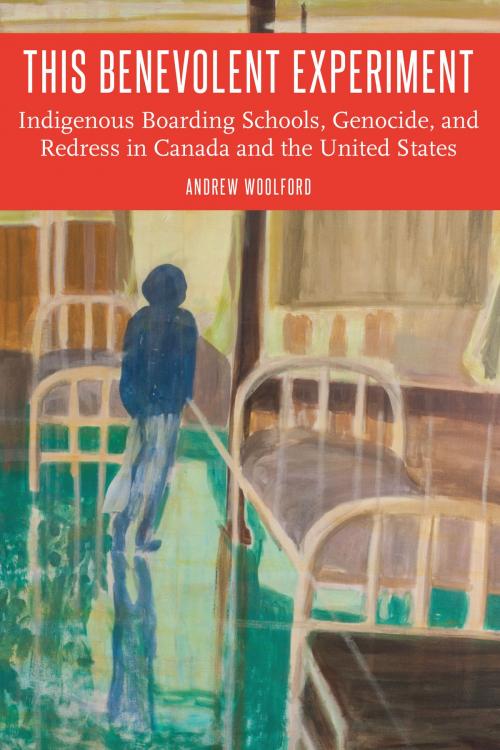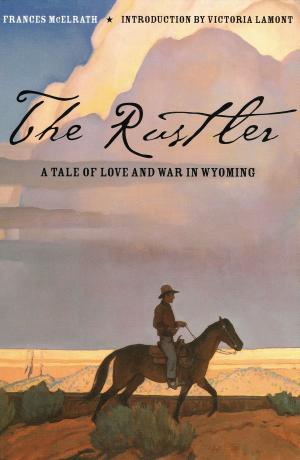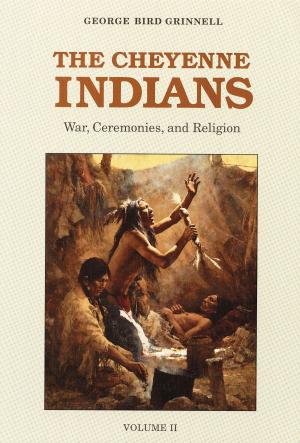This Benevolent Experiment
Indigenous Boarding Schools, Genocide, and Redress in Canada and the United States
Nonfiction, Social & Cultural Studies, Social Science, Cultural Studies, Native American Studies, History, Canada, Americas, United States| Author: | Andrew Woolford | ISBN: | 9780803284418 |
| Publisher: | UNP - Nebraska | Publication: | September 1, 2015 |
| Imprint: | University of Nebraska Press | Language: | English |
| Author: | Andrew Woolford |
| ISBN: | 9780803284418 |
| Publisher: | UNP - Nebraska |
| Publication: | September 1, 2015 |
| Imprint: | University of Nebraska Press |
| Language: | English |
A Choice Outstanding Academic Title, 2017
At the end of the nineteenth century, Indigenous boarding schools were touted as the means for solving the “Indian problem” in both the United States and Canada. With the goal of permanently transforming Indigenous young people into Europeanized colonial subjects, the schools were ultimately a means for eliminating Indigenous communities as obstacles to land acquisition, resource extraction, and nation-building. Andrew Woolford analyzes the formulation of the “Indian problem” as a policy concern in the United States and Canada and examines how the “solution” of Indigenous boarding schools was implemented in Manitoba and New Mexico through complex chains that included multiple government offices with a variety of staffs, Indigenous peoples, and even nonhuman actors such as poverty, disease, and space. The genocidal project inherent in these boarding schools, however, did not unfold in either nation without diversion, resistance, and unintended consequences.
Inspired by the signing of the 2007 Indian Residential School Settlement Agreement in Canada, which provided a truth and reconciliation commission and compensation for survivors of residential schools, This Benevolent Experiment offers a multilayered, comparative analysis of Indigenous boarding schools in the United States and Canada. Because of differing historical, political, and structural influences, the two countries have arrived at two very different responses to the harm caused by assimilative education.
A Choice Outstanding Academic Title, 2017
At the end of the nineteenth century, Indigenous boarding schools were touted as the means for solving the “Indian problem” in both the United States and Canada. With the goal of permanently transforming Indigenous young people into Europeanized colonial subjects, the schools were ultimately a means for eliminating Indigenous communities as obstacles to land acquisition, resource extraction, and nation-building. Andrew Woolford analyzes the formulation of the “Indian problem” as a policy concern in the United States and Canada and examines how the “solution” of Indigenous boarding schools was implemented in Manitoba and New Mexico through complex chains that included multiple government offices with a variety of staffs, Indigenous peoples, and even nonhuman actors such as poverty, disease, and space. The genocidal project inherent in these boarding schools, however, did not unfold in either nation without diversion, resistance, and unintended consequences.
Inspired by the signing of the 2007 Indian Residential School Settlement Agreement in Canada, which provided a truth and reconciliation commission and compensation for survivors of residential schools, This Benevolent Experiment offers a multilayered, comparative analysis of Indigenous boarding schools in the United States and Canada. Because of differing historical, political, and structural influences, the two countries have arrived at two very different responses to the harm caused by assimilative education.















